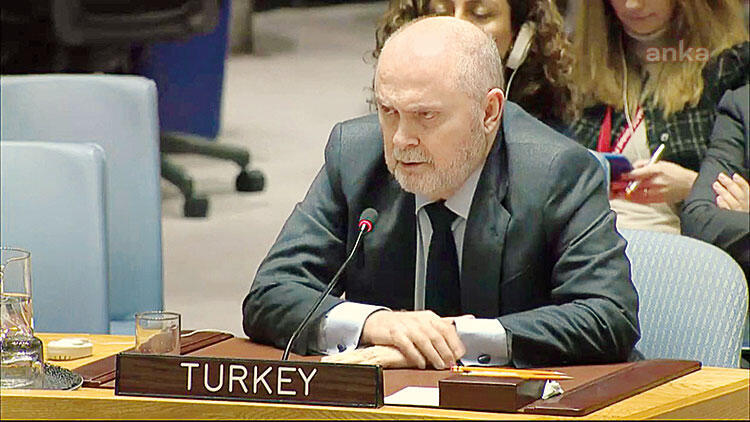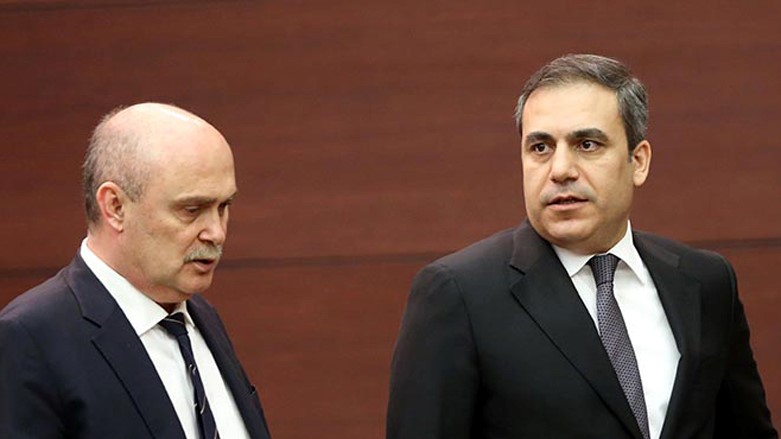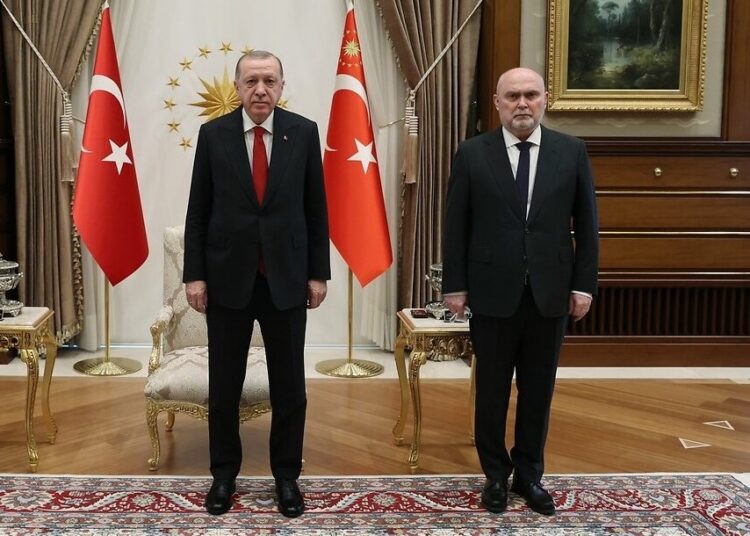Levent Kenez/Stockholm
Turkey and Greece have decided to collaborate on critical leadership positions within the Organization for Security and Co-operation in Europe. Turkey aims to secure the position of secretary general, while Greece seeks to have its candidate appointed director of the OSCE Office for Democratic Institutions and Human Rights (ODIHR).
Turkey’s nominee for the OSCE secretary general is a controversial former diplomat. During his tenure as Turkey’s permanent representative to the UN, he accused Greece of violating the demilitarization of islands in the Aegean Sea as required by the Lausanne and Paris peace treaties and lodged a complaint against Greece at the UN. The ODIHR, whose possible next director is supported by Turkey, issued a report in May 2023 stating that the election in which Turkish President Recep Tayyip Erdogan was re-elected was not fair.
Feridun Sinirlioğlu, a trusted ally of Erdogan with a controversial past involving the Islamic State in Iraq and Syria (ISIS), was appointed by UN Secretary-General António Guterres as the special coordinator for Afghanistan on April 25, 2023. Sinirlioğlu’s appointment raised significant concerns due to his alleged involvement in covert negotiations with ISIS and other clandestine activities that benefitted financially from ISIS-controlled oil.
In 2014 Sinirlioğlu was implicated in a plot involving the deliberate surrender of the Turkish consulate general and consulate staff in Mosul to ISIS, resulting in them being held hostage by ISIS. This move was allegedly part of a strategy to facilitate negotiations with ISIS, leading to the release of ISIS detainees from Turkish prisons and financial gains from smuggled oil. Öztürk Yılmaz, the then-consul general in Mosul, accused the Turkish government of selling out the hostages to benefit from ISIS oil in Syria. He revealed that his numerous attempts to get Turkish authorities to launch airstrikes on advancing ISIS troops were ignored and that emergency cables he sent to Ankara disappeared, suggesting that Sinirlioğlu was involved in a cover-up of the situation.
Sinirlioğlu has a long history of conducting secretive operations for Erdogan, including discussions on a false flag operation to justify a military invasion of Syria in 2014. His involvement in these operations showcases a pattern of using clandestine means for political and financial gain.
Sinirlioğlu was also actively involved in Turkey’s campaign to question Greece’s sovereignty over certain islands in the Aegean Sea in 2021, until a Turkish-Greek rapprochement in 2023.
In a July 13, 2021 letter to the UN Security Council, Sinirlioğlu, the permanent representative of Turkey to the UN, wrote that “Greece’s continuing deliberate and persistent material breach of the demilitarization provisions of the Lausanne and Paris peace treaties, which are essential to the accomplishment of their object and purpose, constitutes a serious threat to the security of Turkey.”
“Greece is in breach of basic provisions of the treaties under which it acquired sovereignty over the islands, which, from a legal point of view, means that Greece cannot, vis-à-vis Turkey, rely on its title under the same treaties for the purposes ofa maritime boundary delimitation,” he added.

Sinirlioğlu claimed that Greece, acting unilaterally since 1960 and in clear contravention of the relevant provisions of these treaties, had been in material breach of its demilitarization obligations through troop concentrations, establishing permanent military installations and conducting several military activities in the eastern Aegean islands.
In a follow-up letter on September 30, 2021, Sinirlioğlu provided a more detailed case, with a six-point legal notice on how Greece had violated the treaty conditions.
“By militarizing the islands in question, Greece has forfeited its right to assert the opposability to Turkey of the treaties mentioned above and the rights which it claims to derive from them,” he wrote.
According to the Security and Human Rights Monitor, which provides analysis on the work of the OSCE, Sinirlioğlu faces five competitors for the position of secretary general. These include Jan Braathu from Norway, currently serving as head of the OSCE mission to Serbia; Igli Hasani from Albania, holding the position of minister for Europe and foreign affairs; Christophe Kamp, the permanent representative of the Netherlands to the OSCE; John MacGregor of Canada, who leads the OSCE center in Ashgabat; and Marcel Peško from Slovakia, serving as the special representative of the OSCE chair-in-office and OSCE project co-ordinator in Ukraine.
Ankara supports Maria Telalian, legal adviser to the Greek Ministry of Foreign Affairs and head of the legal department, for the directorship of the ODIHR, in exchange for the support given to Sinirlioğlu by Athens.
Last year a joint observation mission from the ODIHR, the OSCE Parliamentary Assembly (OSCE PA) and the Parliamentary Assembly of the Council of Europe (PACE) issued preliminary findings and conclusions on Turkey’s elections held on May 14, 2023. They stated that the incumbent president Erdogan and the ruling parties had an unfair advantage.

The mission pointed out ongoing restrictions on fundamental freedoms such as the right to free assembly, association and expression, which hindered the participation of opposition politicians, parties, civil society and independent media in the election process. Additionally, the statement highlighted extensive and positive media coverage of President Erdogan especially by state-owned media outlets.
The election of the OSCE secretary general involves nominations from any participating state, with the final decision dependent on consensus among all 57 member states. While theoretically equal in influence, practical considerations often favor candidates supported by key OSCE players such as the EU bloc, the United States and Russia.
As the current chair, Malta is tasked with impartially presenting the agreed-upon candidates to the OSCE General Assembly in September. Helga Maria Schmid’s term as secretary general was previously extended due to Russia’s veto, which prevented the selection of a successor.
Turkey’s candidate is expected to garner support from Russia, as indicated by diplomatic sources. In this case, Turkey will also need to secure the support of the US and the EU. Furthermore, due to the collaborative effort with Greece, Cyprus is not anticipated to veto, despite reported dissatisfaction among Greek Cypriots. According to reports in the Turkish media, Ankara also expects support for Sinirlioğlu from Armenia. Furthermore, instructions have been dispatched to embassies to actively promote his candidacy, emphasizing the partnership between Turkey and Greece.












